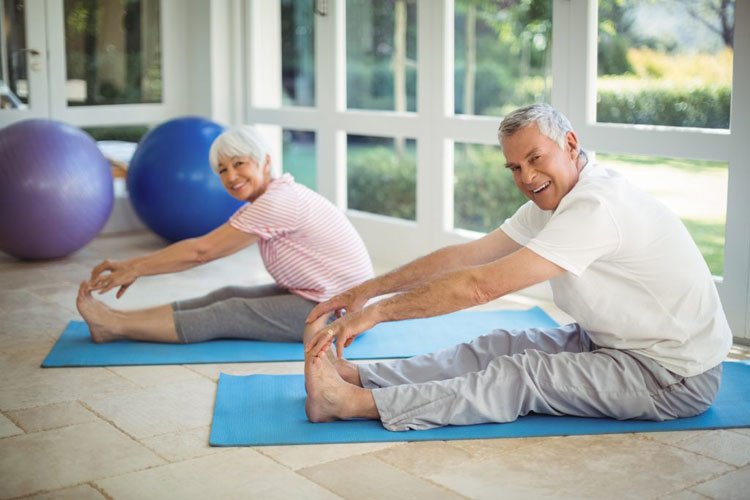
Welcome to WinnerTrick.com — the best source for success and personal development articles, motivational quotes, and tips to live your best life.
contact@winnertrick.com
Want to improve your mood, strengthen your body, and potentially extend your life expectancy? There’s one powerful, accessible tool that ticks all those boxes—regular exercise. Whether you're young or old, male or female, highly active or just starting out, physical activity has wide-ranging benefits that can transform your daily quality of life and long-term health.
You don’t need to be a marathon runner or a gym rat to benefit. All it takes is movement—done consistently and with purpose. Below is a breakdown of how regular physical activity positively affects your body, mind, and lifestyle.
One of the most common reasons people turn to exercise is weight management—and for good reason. Physical activity burns calories, and the more intense the activity, the higher your calorie burn will be. Whether your goal is shedding pounds or preventing weight gain, staying active plays a pivotal role.
That said, you don’t have to carve out huge blocks of time at the gym. Small, deliberate changes in your daily routine can add up: taking the stairs, walking instead of driving short distances, or even turning house cleaning into a mini workout. The secret isn’t complexity—it’s consistency. Move more, sit less, and over time, your body will thank you.

Concerned about your heart health? Want to lower your chances of developing chronic illnesses? Regular exercise is one of the most effective ways to protect yourself. It increases high-density lipoprotein (HDL) cholesterol—often referred to as the “good” kind—while lowering unhealthy triglycerides. This combination supports smoother blood flow and lowers your risk for cardiovascular problems.
But the benefits don’t stop at the heart. Being active can help prevent or control a broad range of medical issues, including:
High blood pressure
Type 2 diabetes
Stroke
Metabolic syndrome
Depression and anxiety
Certain types of cancer
Joint inflammation and arthritis
Risk of falls, especially in older adults
Even cognitive health gets a boost. Studies suggest that consistent exercise improves brain function and may reduce your risk of early cognitive decline or memory loss. It's not an exaggeration to say that movement is medicine.

Ever notice how you feel better after a walk, jog, or workout? There’s a reason for that. Physical activity stimulates the release of brain chemicals like endorphins and serotonin—natural mood lifters that help you feel happier and more relaxed.
You don’t have to be battling depression or anxiety to benefit. Even mild stress from work or family life can melt away with a little sweat. And as a bonus, exercise often boosts your confidence by improving how you feel about your appearance and capabilities, making you more comfortable in your own skin.
If you find yourself getting winded after simple tasks like climbing stairs, carrying groceries, or tidying up the house, it may not be age or lack of sleep—it could be inactivity. Regular physical exercise improves muscle efficiency and cardiovascular endurance over time.
When you work out, your heart pumps more effectively, your lungs distribute oxygen more efficiently, and your muscles learn to use energy more wisely. This cumulative effect results in greater stamina for daily activities. Instead of dreading routine chores, you may actually start breezing through them with more ease and less fatigue.
Struggling to fall asleep or waking up repeatedly throughout the night? Regular physical activity can make a significant difference. Studies have shown that exercise helps you fall asleep faster, improves the depth of sleep, and increases the proportion of restorative deep sleep.
The only caveat? Try not to work out too close to bedtime—high-intensity movement can stimulate your body and mind, making it harder to wind down. But a morning jog, afternoon stretch session, or early evening bike ride can all support a healthier sleep cycle, helping you wake up more refreshed and alert.

Physical intimacy is often closely linked to self-confidence, mood, and energy levels—all of which are positively impacted by regular exercise. Whether you're trying to reignite passion or overcome fatigue, staying active can make a real difference in how you experience and enjoy intimacy.
For women, increased blood flow and hormonal balance through exercise may enhance arousal and responsiveness. For men, consistent activity has been associated with a lower risk of erectile dysfunction—especially in those who maintain cardiovascular health through aerobic exercise. And perhaps most importantly, feeling good about your body often leads to a more relaxed and satisfying connection with your partner.

Who said exercise has to be boring? One of the most underrated benefits of physical activity is its ability to bring joy and connection. Whether you're joining a dance class, hiking with friends, cycling in a local park, or tossing a frisbee with your kids, staying active can be one of the most rewarding and social parts of your day.
Plus, sharing your fitness journey with others adds accountability and makes it easier to stay motivated. Group workouts, walking partners, and community sports leagues can all help make exercise something you look forward to instead of something you dread. The more fun you have, the more likely you'll stick with it.

If you’re wondering how much exercise is “enough,” you're not alone. The good news is that you don’t have to be a full-time athlete to gain serious health rewards. The U.S. Department of Health and Human Services offers straightforward recommendations for most healthy adults:
Aim for at least 150 minutes per week of moderate aerobic activity (like brisk walking or light cycling), or 75 minutes per week of vigorous activity (such as running or fast swimming). You can also combine both intensities.
In addition to cardio, engage in strength training exercises for all major muscle groups—like arms, legs, chest, and core—at least twice a week. This could involve using resistance bands, body-weight moves like squats and pushups, or lifting free weights.
These activities can be split up however you like. Whether it’s five 30-minute sessions or three longer workouts, the goal is to make movement part of your weekly rhythm. Even short, spread-out sessions throughout your day can add up to meaningful benefits.
And if your goals include weight loss or specific fitness milestones, you may need to increase your activity time to 300 minutes or more weekly. The key is to start where you are, go at a pace you can manage, and build from there.
While exercise is beneficial for nearly everyone, it’s especially important to check in with your healthcare provider before jumping into a new routine—especially if you have underlying health conditions like heart disease, joint issues, or diabetes. A doctor can guide you on safe intensity levels, proper techniques, and tailored goals based on your current fitness level and medical background.
Starting smart minimizes injury risk and helps you build sustainable habits. The goal isn’t to rush toward a finish line—it’s to make movement a natural, enjoyable part of your life.
One of the biggest reasons people fall off their fitness plans is boredom. Doing the same routine over and over not only stalls progress but can also zap motivation. To keep things fresh and your body challenged, try rotating your workouts. Alternate between cardio, strength training, flexibility work, and fun activities like dance, boxing, or outdoor games.
Cross-training doesn't just fight boredom—it reduces your risk of overuse injuries and helps you develop more balanced overall fitness. Think of it as giving your body new puzzles to solve every week.
Make sure you enter all the required information, indicated by an asterisk (*). HTML code is not allowed.